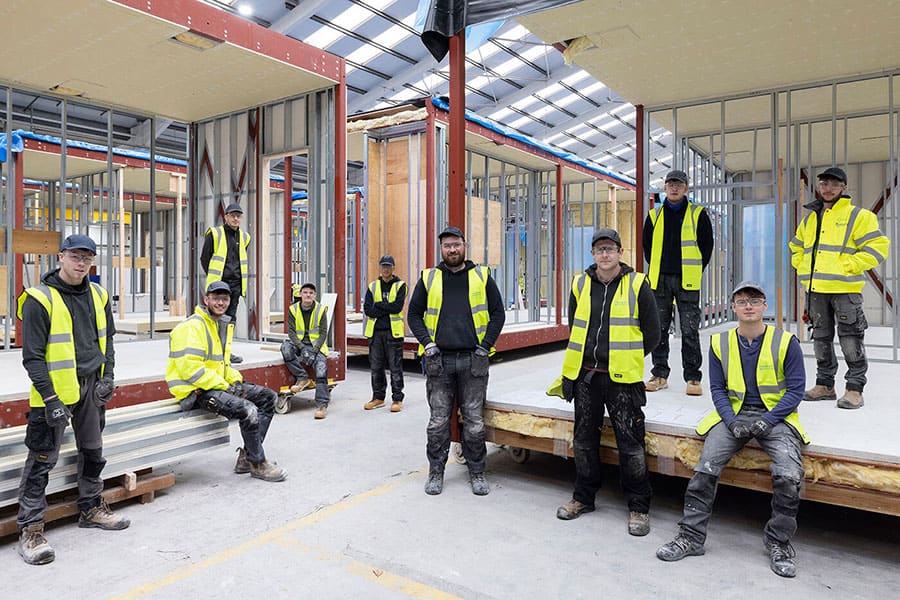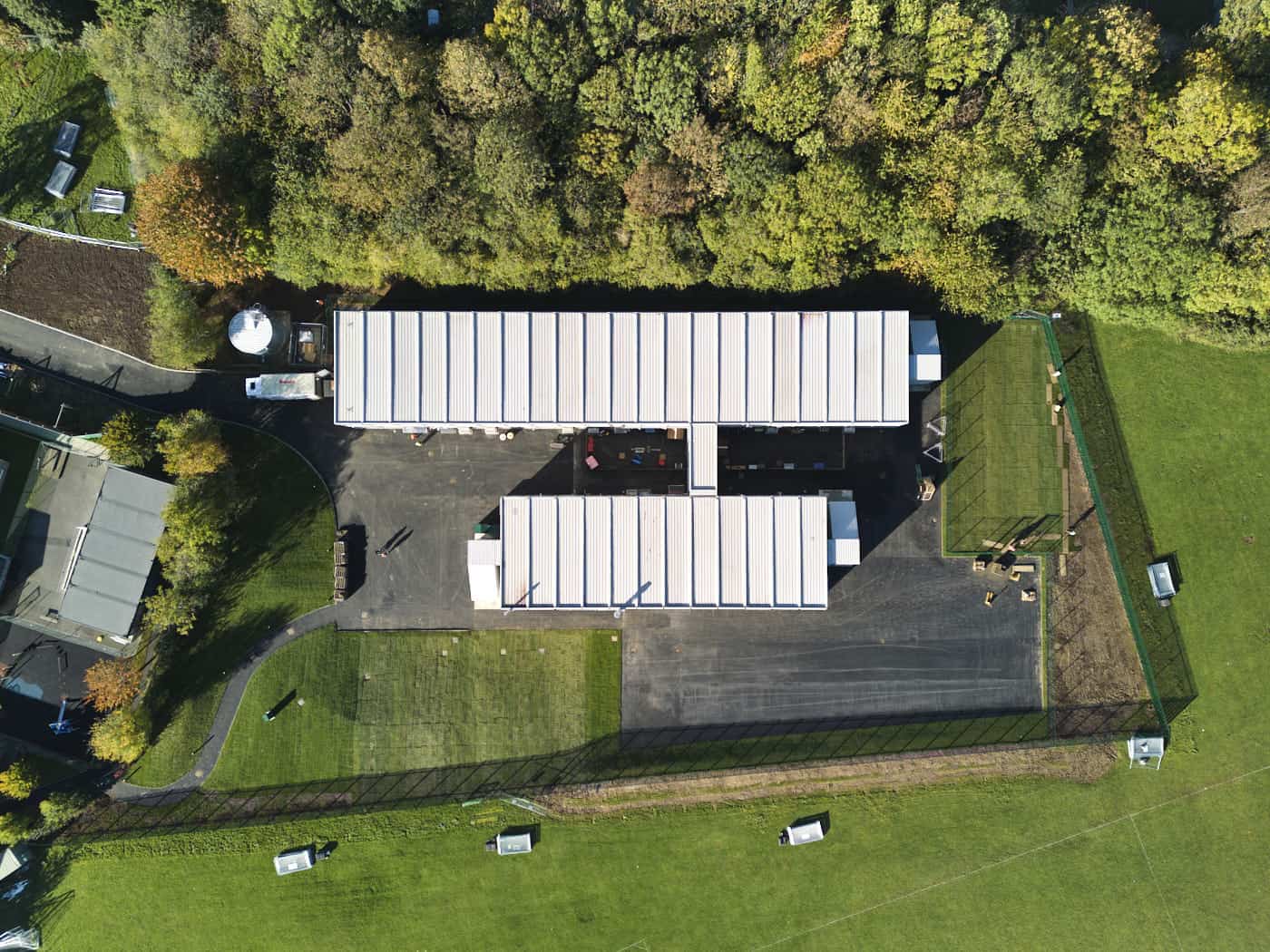Due to the UK construction industry’s ongoing cost increases, it’s more important than ever to acquire new employees and retain existing team members.
As the number of construction workers in the UK falls, particularly amongst the younger generation, businesses must act swiftly to close skills gaps in order to meet industry demands.
By 2027, an additional 225,000 workers will be required in the UK to support the construction industry – therefore, preparing the labour force for this growth is crucial to ensure we can build the next generation of buildings in the UK and meet net zero goals.
How can young people kickstart their careers?
Many young people believe that career development is absent within the construction industry – and businesses must dispel these beliefs.
In the UK, there’s now more apprentices than ever before, and attitudes are changing. Apprenticeships are now recognised as a legitimate alternative to a university education, since they give young people the chance to learn valuable skills whilst earning money. By working alongside more seasoned personnel, apprentices can put their learning into practice and contribute to their chosen firm immediately.
Rising through the ranks
Lee Cook-Walton, our head of rental operations here at Premier Modular, explains how his apprenticeship has given him a wealth of opportunities.
“I started my career at Premier as a woodworking apprentice for 3 years, followed by a further 3-year apprenticeship in site carpentry and joinery.”
“I grew into a factory supervisor role a few years later, then progressed into a production manager – overseeing all rental division manufacturing elements of the business.”
“My next step was a manufacturing manager, overseeing everything that went through the sales and rental division production units. This involved around 5 factories, consisting of 120 operatives producing 80 modules per week.”
Just over a year ago, Lee decided to move his expertise into rental modular space, becoming the head of UK and European operations.
After being asked why he’s decided to stay with us for so long, Lee explained, “You really do feel like part of a family – the ethos, company values and autonomy of the business are unmatched – we’re trusted to do our jobs but know there’s support when needed. Everyone wants to support each other, and we all have the same vision in mind.”
Lee has continued his education since completing his apprenticeship and has obtained a number of professional and personal qualifications, including the BDLP (Business Development Leadership Programme), Construction and Business HND (Higher National Diploma), and most recently, a Chartered Institute of Building (CIOB) status.
During training, Lee describes the importance of flexible learning: “To fully develop my skills, I had day releases from work to study. Premier covered these for me – this way I avoided the need to learn in my own time on top of my day job.”
“From day one, Premier has invested heavily in me, and more importantly has put faith in me even when things haven’t gone to plan.”
Mentoring is also available when needed: “Training has been progressive as my roles have changed – I’ve needed to expand my knowledge to adapt to different areas of the business and support my development.”
Versatile experience
Chris Christian, our estimating manager at Premier Modular, began his career as a joinery apprentice, before switching to a manufacturing position.
After 3 years of learning on the job, Chris decided a hands-on role wasn’t suited to him: “I moved into a junior estimating role for 3 years, which then progressed into a senior position, allowing me to gain the knowledge needed.”
Since 2022, Chris has worked as an estimating manager within the permanent side of the business.
Explaining why he decided to take an apprenticeship with us, Chris says, “Apprenticeships are always a good career start – you gain real life experience and build your technical skills. It’s something I’d recommend at a young age – you can always do the traditional university route later down the road.”
“Throughout my time here, the business has supported my progression, continually providing opportunities to grow. I don’t see myself leaving any time soon”.
Flexible training
Sam Sutcliffe, Premier Modular’s HR professional, is the main point of contact between regional colleges and our apprenticeship programme and is responsible for overseeing the onboarding and education of apprentices.
Describing the importance of filling the skills gap, Sam explains, “It’s essential we provide training for modular construction and offer involvement within different production departments, for overall business experience.
“As we adapt training around the industry skills needed, we create all-rounders, providing our apprentices with the knowledge required for long-term development within the business.”
“Our future apprenticeship plans include targeting female and BME (Black and Minority Ethnic) candidates, ensuring Premier becomes an even more inclusive career option for everyone.”
Futureproofing
By investing in apprenticeship programmes, employers can ensure their workers are becoming flexible professionals. Companies must close the manufacturing skills gap if they’re looking to progress as businesses keep their employees. This in turn will support long-term business goals.
For more information, get in touch or call 0800 316 0888.











